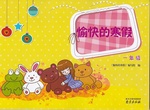题目内容
Students who say they never or hardly ever used dictionaries may speak English well but usually write poorly, because they make many mistakes.
The students who use dictionaries most do not learn especially well either. The ones who look up every new word do not read fast. Therefore they do not have time to read much. Those who use small two-language dictionaries have the worst problems. Their dictionaries often give only one or two words as translations of English. But one English word often has many translations in a foreign language and one foreign word has many translations in English.
The most successful students are those who use large college edition dictionaries with about 100,000 words but do not use them too often. When they are reading, these students first try to get the general idea and understand new words from the context. Then they reread and use the dictionary to look up only key words that they still do not understand. They use dictionaries more for writing. If they are not sure how to spell a word, they always use a dictionary. Also, if they think a noun might have an unusual plural form, they check this in a dictionary.
【小题1】The writer thinks that ___________.
| A.choose a good dictionary, and you’ll be successful in learning English |
| B.dictionaries are not necessary to the students who learn English |
| C.it is very important for students to use good dictionaries properly |
| D.using dictionaries very often can’t help to improve writing |
| A.Dictionaries have little effect on learning to speak English. |
| B.Whatever new words you meet while reading, never use dictionaries. |
| C.Small two-language dictionaries have serious shortcomings. |
| D.Reading something for the first time, you’d better not use dictionaries. |
| A.At the beginning of the reading | B.At the end of the reading |
| C.During the first reading | D.After the first reading |
| A.that students shouldn’t use small two-language dictionaries |
| B.what were the shortcomings of small two-language dictionaries |
| C.why students should use large college edition dictionaries |
| D.what dictionary students should choose and how to use it |
【小题1】C
【小题2】B
【小题3】D
【小题4】D
解析试题分析:本文主要告诉我们学生应该选择什么样的字典以及如何使用不同的字典。
【小题1】C 态度观点题。本文讲述了不同的同学使用不同的字典会产生很不同的效果,告诉我们恰当使用字典的重要性。故C正确。
【小题2】B 推理题。根据文章2,3段内容可知当我们遇见生词的时候,不是所有的词都查字典,而是要去查最重要的关键词。也是不是都不查。光顾B项说法错误。
【小题3】D 推理题。根据文章第三段,3,4,5行When they are reading, these students first try to get the general idea and understand new words from the context. Then they reread and use the dictionary to look up only key words that they still do not understand.可知我们在第一次阅读以后如果有不认识的单词可以查字典查询。故D正确。
【小题4】D 主旨大意题。本文主要告诉我们学生应该选择什么样的字典以及如何使用不同的字典。故D项正确。
考点:考察教育类短文阅读
点评:本文主要告诉我们学生应该选择什么样的字典以及如何使用不同的字典。本文要求考生读懂文章中的每个句子的意思还要推理它们之间的关系,结合自己的生活常识和经验,再通过逻辑推理和判断,理解文章的言外之意,从而揭示文章的深层涵义。任何一篇文章都有其特定的写作目的,读者应当知道如何去做或按照某种方式传递思考问题。推理判断题的答案不可能在文章中直接找到,因此推理时我们务必要忠于原文,在文章中寻找并确定可推论的依据,即:已知部分-推论的前提,从中推测出未知部分-推理的结论,切忌妄加评论,把自己的观点当成作者的观点。

 愉快的寒假南京出版社系列答案
愉快的寒假南京出版社系列答案